Resources in this collection are intended to help patients and caregivers be active partners in their healthcare, suggest ideas for how to advocate for themselves, and offer ways to develop a strong relationship with clinicians based on trust, respect, and honesty.
The visits are often fleeting moments of connection, where something clicked, often creating a better outcome for the visit: a hesitation, a slight change in body language…a sigh or an intake of breath, a smile, sharing a joke.
In these moments of connection, we move from a “you” and “me” – that is, a doctor and patient, as separate, to a you and me as “we” – two people, sharing.
These moments of connection…allow us to see each other as human beings. And they help us care for each other, and maybe even heal each other.
—Dr. Martina Ann Kelly, a family physician, professor of family medicine, and the undergraduate director for family medicine at the Cumming School of Medicine, University of Calgary and the 2022 recipient of the AFMC–Gold Humanism Award.
Patient Resources from The Society to Improve Diagnosis in Medicine
 Resources include a downloadable toolkit created by and for patients, a column about understanding your role as a patient, patient stories, and more.
Resources include a downloadable toolkit created by and for patients, a column about understanding your role as a patient, patient stories, and more.
How Patient-Centered Healthcare Helps You Be Your Own Best Advocate
 A family health nurse practitioner explains how a patient treatment provider can help you and your loved ones make informed decisions, in this Q&A article.
A family health nurse practitioner explains how a patient treatment provider can help you and your loved ones make informed decisions, in this Q&A article.
Make the most of your doctor visit
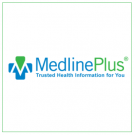 This brief article from Medline Plus (National Library of Medicine) encourages being honest and upfront with your care team, offering suggestions for what to share and ask and other ways to prepare for your encounter.
This brief article from Medline Plus (National Library of Medicine) encourages being honest and upfront with your care team, offering suggestions for what to share and ask and other ways to prepare for your encounter.
Don’t Be Shy: 4 Tips for Talking to Your Doctor
 This article from Johns Hopkins emphasizes a collaborative relationship between the patient and their healthcare team member, encouraging patients to set an agenda, be honest, ask questions, and work collaboratively toward the best outcome.
This article from Johns Hopkins emphasizes a collaborative relationship between the patient and their healthcare team member, encouraging patients to set an agenda, be honest, ask questions, and work collaboratively toward the best outcome.
How to talk to your doctors—and get them to actually listen
 This brief article from Fortune Well offers ways to help ensure your concerns are heard by your care team, touching on the role of conscious and unconscious bias, your right to considerate, respectful care, and the benefits of having a loved one or advocate present at an encounter.
This brief article from Fortune Well offers ways to help ensure your concerns are heard by your care team, touching on the role of conscious and unconscious bias, your right to considerate, respectful care, and the benefits of having a loved one or advocate present at an encounter.
How to Talk So Your Doctor Will Listen
 This brief article from the American Association of Retired Persons (AARP) offers a handful of strategies to maximize your office visit, including “Make a human connection”, “Tell the whole truth” and “Rehearse before you go”.
This brief article from the American Association of Retired Persons (AARP) offers a handful of strategies to maximize your office visit, including “Make a human connection”, “Tell the whole truth” and “Rehearse before you go”.
A Guide for Older Adults: Talking With Your Doctor
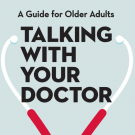 A Guide for Older Adults: Talking With Your Doctor created by the National Institute of Aging offers a wealth of advice, useful definitions, and checklists for fostering a positive relationship with your healthcare team to collaboratively manage your medical problems and keep you as healthy as possible. Topics include:
A Guide for Older Adults: Talking With Your Doctor created by the National Institute of Aging offers a wealth of advice, useful definitions, and checklists for fostering a positive relationship with your healthcare team to collaboratively manage your medical problems and keep you as healthy as possible. Topics include:
- Selecting a primary care doctor that you feel comfortable with
- How to prepare for, what to share, and what to ask during your appointment
- How to make decisions together with your doctor, specialists, or other hospital staff
- Guidance on holding difficult but necessary conversations.
Tools To Help Patients Communicate Their Needs
 This toolkit from the Agency for Healthcare Research and Quality (AHRQ) emphasizes that communication is a 2-way street; a patient’s ability to express themselves clearly, process and interpret the information they receive, and act upon it contributes to the care experience. It also recognizes that people have historically been socialized to restrain themselves with doctors, answering only what they have been asked, and offers techniques for patients to communicate effectively with their care team.
This toolkit from the Agency for Healthcare Research and Quality (AHRQ) emphasizes that communication is a 2-way street; a patient’s ability to express themselves clearly, process and interpret the information they receive, and act upon it contributes to the care experience. It also recognizes that people have historically been socialized to restrain themselves with doctors, answering only what they have been asked, and offers techniques for patients to communicate effectively with their care team.
AHRQ also offers a series of 2-minute videos that feature conversations between patients and clinicians addressing the patients’ questions to help get them right care at the right time.
Talking With Your Doctor or Health Care Team Member
 This resource from the NIH includes a series of 4-minute videos and articles in English and Spanish about how clear and honest communication between you and your physician or health care team can help you make informed choices about your health together. Topics include cultural factors relating to communication and how to talk about complementary and integrative health.
This resource from the NIH includes a series of 4-minute videos and articles in English and Spanish about how clear and honest communication between you and your physician or health care team can help you make informed choices about your health together. Topics include cultural factors relating to communication and how to talk about complementary and integrative health.
Sharing Your Story: Tips for Patients and Families
 This 2-page resource from the Institute for Patient- and Family-Centered Care offers a bullet point list of questions to consider whether to share your story in a formal presentation and strategies for how to tell it.
This 2-page resource from the Institute for Patient- and Family-Centered Care offers a bullet point list of questions to consider whether to share your story in a formal presentation and strategies for how to tell it.
Family Care Alliance: Partnering With Clinicians
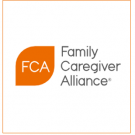 This collection of articles and videos from Family Care Alliance offers tips on bringing up sensitive topics with your family and care team, how to communicate with the healthcare team using and managing medications in the best way, and approaches to building mutual trust with clinicians.
This collection of articles and videos from Family Care Alliance offers tips on bringing up sensitive topics with your family and care team, how to communicate with the healthcare team using and managing medications in the best way, and approaches to building mutual trust with clinicians.
The site also offers resources in Chinese, Korean, Spanish, Tagalog and Vietnamese.
Patient Rights and Advocacy
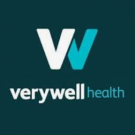 This engaging collection of articles from Verywell Health underscores the importance of patient empowerment when navigating the healthcare world, offering ideas for how to advocate for yourself, understand your patient rights, and make the best choices for your health.
This engaging collection of articles from Verywell Health underscores the importance of patient empowerment when navigating the healthcare world, offering ideas for how to advocate for yourself, understand your patient rights, and make the best choices for your health.
Your Health Information Rights
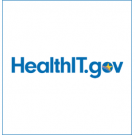 This article from HealthIT.gov offers information, in a Q&A format, relating to healthcare information rights, including “Do I have the right to see and get a copy of my health records?” and Can I ask to correct the information in my health records?”.
This article from HealthIT.gov offers information, in a Q&A format, relating to healthcare information rights, including “Do I have the right to see and get a copy of my health records?” and Can I ask to correct the information in my health records?”.
State and local governments also offer information about patients’ rights to informed medical care, respectful communication, and access to records, such as this resource from the New Jersey Department of Health.
Age-Friendly Care
 Age-Friendly Care is a resource from the John A. Hartford Foundation, promoting health care that addresses your unique needs and wants, care that is safe and based on what research shows are the most important things to pay attention to as we get older – the 4Ms: what Matters, Medication, Mentation and Mobility.
Age-Friendly Care is a resource from the John A. Hartford Foundation, promoting health care that addresses your unique needs and wants, care that is safe and based on what research shows are the most important things to pay attention to as we get older – the 4Ms: what Matters, Medication, Mentation and Mobility.